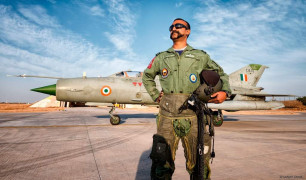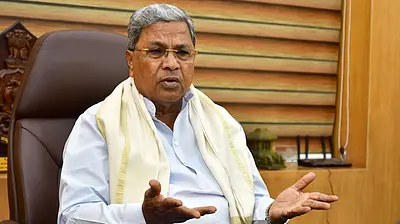او راجہ جی کے ہوئی ریا تُساں کی ؟؟؟
مِیں کِی تُساں نا پتا نہ لگنا کے شُغل میلے لئی جاقتاں کی اُنگل دَئیی چَسکے چِھکنے او یا روزہ رکھی کے وِی میجوریٹی جاہل پٹواریاں نی طرح ہر شے نے وچ کبوتر نی طرح اَکّھاں بند رخنیاں تئے اپنی روایتی پٹواری چولاں مارنا بُوں ضروری اے ؟؟ میں تُساں کئی وری دَسیا اے کے تُساں پڑھے لکھے پٹواری او جس نی سوچ عام پٹواریاں والی نَئیں ہونی چَئنی اے . خدا نا خوف کرو ، تُساں انجینئر بن کے گوایا اے
.ہر گَل نے اَپر چولاں مارنا ضروری نئیں . کدے کَدیں قیقُوت وی مَن لیا کرو
!!!لؤ آپو پَڑوھ نِکّے پٹواری بٹ نی میٹرو تے خٹک تیلے نی بی آر ٹی نا فرق
TransPeshawar or
Peshawar Bus Rapid Transit is a
bus rapid transitsystem currently under construction by the Peshawar Development Authority (PDA) in
Peshawar, capital of
Pakistan's
Khyber Pakhtunkhwa (KPK) province. Divided into two separate phases, the first phase of the TransPeshawar BRT system will encompass an east-west corridor to be served by 31 stations with an initial 255 buses, at a cost of ₨68.9 billion. 88% of funding is being provided by the
History
In 2013, the
Government of Khyber Pakhtunkhwa requested technical support from the
Cities Development Initiative for Asia to improve Peshawar's chaotic, mismanaged, and dilapidated urban transportation network. In 2014, the CDIA completed the
Urban Transport Pre-Feasibility Study that devised a 20-year urban transport plan, with a 10-year action plan. The CDIA studied two corridors, an east-west corridor, and a north-south corridor and recommended that the east-west corridor be constructed first, along Peshawar's east-west axis along the
Grand Trunk Road. Construction of the project, under the Peshawar Development Authority (PDA), began on 29 October 2017, and is being executed by the Peshawar Development Authority.
Features
TransPeshawar's first phase will consist of an east-west
busway which will stretch from
Chamkani in the east end to the
Karkhano market in the west end of Peshawar.
Route
The system will have 31 stations and will be mostly at grade, with four kilometers of elevated sections and 3 elevated stations.The line will also contain 3.5 kilometers of underpasses. The entire busway will be fenced to prevent unauthorized pedestrian crossings, and to prevent vehicular traffic from entering.
Buses
TransPeshawar was originally planned to use a fleet of 255 buses, of which 155 will be 12 meter-long buses, while 65 will be 18 meter-long
articulated buses. The articulated buses will run only within the Service route/within corridor while the 12 meter-long buses will run in primarily in the Feeder system.
The Buses will be of the
low-entry type which will allow easy entry and egress from the doorways, especially for patrons using wheelchairs. Each bus will provide free
Wifi services for passengers, while stations will have toilet facilities. Buses will arrive every 3 minutes during peak hours, and every 5 minutes during non-peak hours.
Furthermore, the buses will be Diesel-Electric
Plug-In Hybrids which will allow them to have improved overall fuel economy and lower emissions. For this purpose, charging stations will also be built to allow for recharging of the vehicle batteries.
The contract for the supply of buses has been formally signed with
Xiamen Golden Dragon Bus Co., Ltd.. The tender allowed for a variation of +/-30% in the quantity of buses, thus as a start the contract has been signed for the supply of 155 units of 12-meter buses and 65 units of 18-meter articulated buses for a total value of PKR 5.478 billion. The provision to increase the quantity of buses to a maximum of 388 buses (+30% of 299) is still present, and this may be done depending on the passenger load on the system once the initial batch of 220 buses enters operation.
Stations
TransPeshawar's 31 stations will feature passing lanes at each station, allowing the function of a "direct service" system in which buses from suburban areas can access TransPeshawar's dedicated bus-lanes for use as an express service directly to the city's centre. Each station will be on average 850 metres from the previous station, with an estimated travel time of 2 minutes between adjacent stations. Stations, unlike the buses themselves, will not be air conditioned.
Feeder system
The TransPeshawar system will be complemented by a feeder system consisting of 8 routes extending 68 kilometres. Feeder buses will use dedicated BRT lanes as needed before exiting the system and entering onto city streets as on-street bus service. The feeder routes will add an additional 100 stations along those feeder lines, all of which will be new construction. Feeder station will be spaced approximately 300-500 metres from one another.
Construction
Construction of the east-west corridor will be completed in three phases:
- Phase 1: Chamkani to Balahisar Fort
- Phase 2: Balahisar Fort to Aman Chowk
- Phase 3: Aman Chowk to Karkhano Market
The entire road structure along the east-west corridor will also be reconstructed, and will include a new bicycle lane. The number of traffic lanes along the
GT Road will also be reduced, leading to what will be intended as a more pedestrian-friendly street.
Project construction was launched in November 2017, and is being built concurrent to the
Peshawar Ring Road, which will redirect heavy vehicles away from the city centre. The project was awarded to consortium led by China Railway 21st Bureau Group, while engineering consulting was provided by
Mott MacDonald.
Fares
The provincial government intends to collect fares via an automated ticketing system that is also intended to be used on all city routes. Currently, fares are collected by bus operators. With implementation of the automated ticketing system, bus operators will no longer collect fares.






































